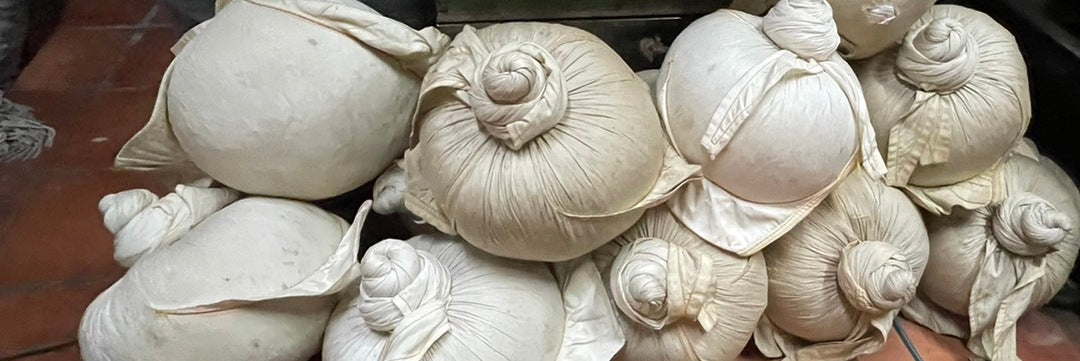
Muzha Tie Guan Yin Oolong

We just recently put our spring 2023 batch of Tie Guan Yin Oolong Tea on the shelf. We purposely allowed it to rest for more than four months before packaging it up to put in the store. This allows the roast to settle and mellow, bringing forth a more complex and refined flavor profile. We are always impressed at how this tea brews a luminescent rich copper-toned brew — portraying the skill and finesse of how it was roasted several times for a total of about 50 hours.
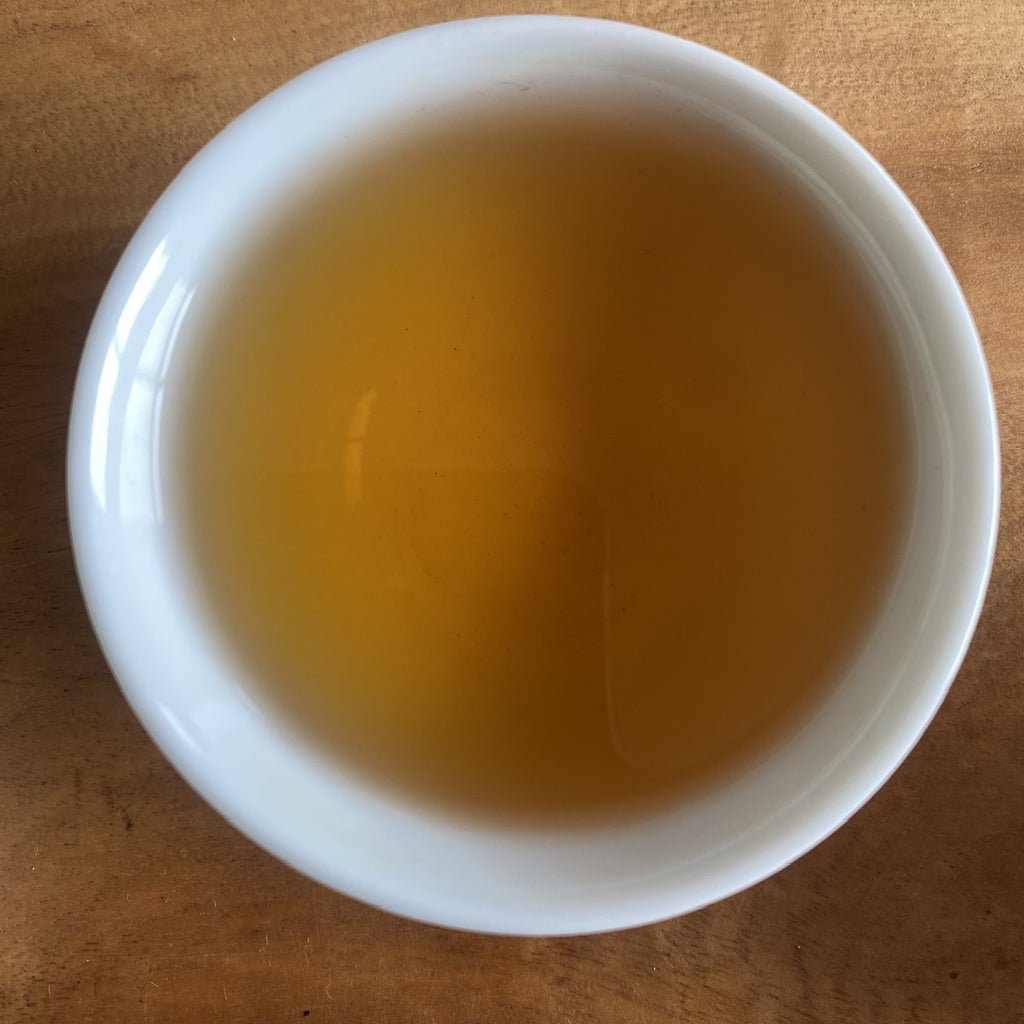
Both the color of the brewed tea and the flavor profile are not prominently expressive of a heavily roasted oolong. It's more of an integrated profile of earthy, mineral, leather, tobacco, campfire, and tangy fruit qualities. This is why Tie Guan Yin Oolong is a distinguished tea. It stands on its own. We wrote a blog post about why it is distinguished, because — well, people should know!
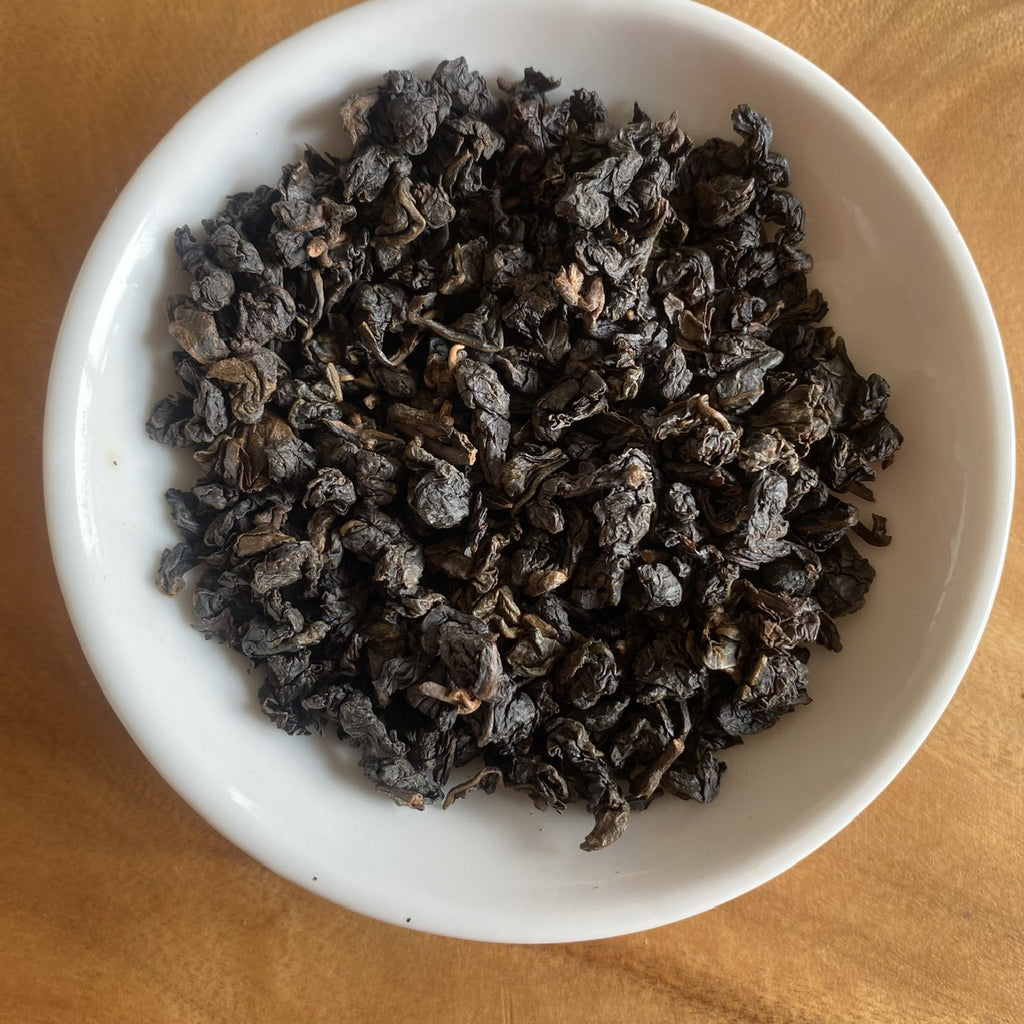
All the images above are of the spring 2023 batch that is in store now. Before moving on to the the source of this tea, and the challenges of organic tea farming, we want to bring your attention to the way these tea leaves are rolled — in the fashion of a traditionally made Oolong Tea in that they are not so tightly rolled. Our source does all the work himself. It's literally a one man operation after the leaves have been fixed by tumble heating. He rolls the leaves in his home without the use of a hydraulic compressor that makes the leaves more tightly rolled. A well-oxidized Oolong Tea that is heavily roasted requires skilled, nimble rolling and drying. The appearance of these leaves is testimony to this arduous work.
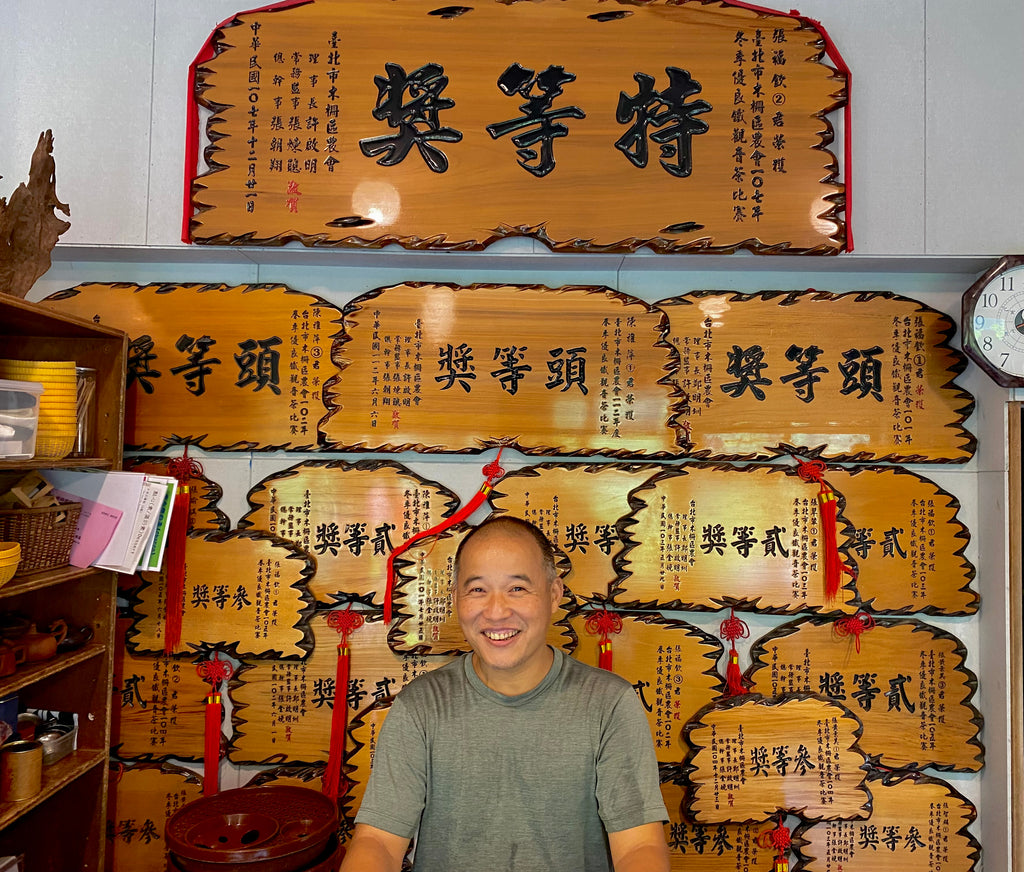
This is the wall of awards in his tiny tea "studio factory". We've never seen anything like it elsewhere. It's the most solo artisan set up that we know of here in Taiwan. So, now let's touch upon his farm practice, and what a volatile prospect it is to grow tea organically on his land. In his current operation, he sources the bulk of his raw leaf material from conventional tea farmers in the nearby Pinglin tea growing region, and combines that with his own organically farmed produce of the Tie Guan Yin tea strain — when he has a crop to harvest.
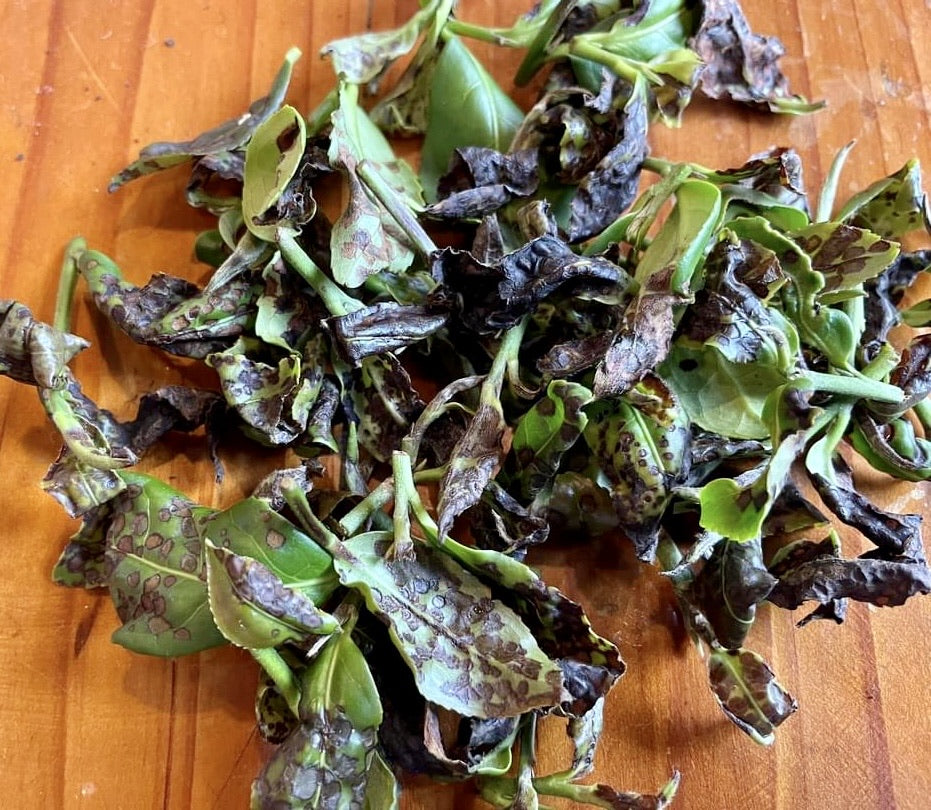
These are a handful of leaves picked from his current winter crop on the lower plot of organically farmed Tie Guan Yin tea strain. This season's yield has mostly been lost to the effects of the mosquito tea bug. Long term infestation on a seasonal basis will eventually compromise the health of the tea trees and consequently the sustainability of farm production. So, our friend is carefully considering how to proceed. He may have to take out the whole plot of trees and plant a new generation, and then determine how to not sacrifice his land use in the future.
Check out the video of our visit to get a fuller picture of this source, and our visit to his home in Maokong, Muzha, Taipei, Taiwan!
LET US KNOW!
Please post any questions or comments you may have in the comments section below!
SUBSCRIBE!
If you enjoyed this post and would like to hear more about the specialty tea industry here in Taiwan, follow us on YouTube, Facebook, and Instagram and please subscribe to our newsletter. Subscribe now and get US$5 off your first order.

